Colorado Set To Ban Mountain Lion Hunting?
By Dave Shaffer
Last month I posted that the same crazy liberals in Boulder and Denver who pushed Proposition 114 to Reintroduce Wolves onto the Colorado ballot back in 2020, were now attempting to ban mountain lion hunting in Colorado. They filed a notice to put measure 33-4-101.4 on next year’s general election ballot that would outlaw mountain lion and bobcat hunting in the state and were in the process of trying to get 125K required signatures to approve the petition (there have been no signatures collected at this time). This initiative would essentially ban hunting and trapping of mountain lions, bobcat, and lynx in Colorado.
Bryan Jones is the Backcountry Hunters & Anglers (BHA) chapter coordinator for Colorado and Wyoming and lives here in Castle Rock, Colorado. As Brian pointed out with Mark Heinz of “The Cowboy State Daily”, he believes, “In the rural areas of both states (Colorado and Wyoming), you find similar mindsets. The problem here is that Denver, Boulder, and Colorado Springs have booming populations, and you frequently have people with a different mindset.” This results in things like this ballot highlighting the state’s rural-urban divide and being driven by emotion, not science.
The ballot initiative tries to frame wildcat hunting and trapping as “trophy hunting” done purely for sport or profit, Jones said, adding that’s not the case. “It’s already illegal to not utilize your harvest in Colorado. They say that people don’t eat mountain lion meat, and that’s absolutely false.” Advocates of the ballot measure also claim pursuing mountain lions with hounds, which is allowed in both Wyoming and Colorado, is inhumane. The push to ban hunting or trapping mountain lions and bobcats is based on emotional appeals, he said.
BHA supports the North American model of wildlife management, which recognizes hunting, fishing and trapping as vital elements of conservation. Hunting for mountain lions and other species helps balance not only those species, but the big game animals, such as deer and elk, that they prey on and “nongame species” as well, Jones said. It’s BHA’s stance that when predator populations aren’t kept in check, those species themselves can suffer and that can lead to more conflict with people, he added. “Oftentimes, the predators that aren’t finding food out in the wild are becoming opportunistic and coming down into the populated areas looking for food sources. We’re really seeing it with bears here in Colorado, and you’re starting to see it with bears up there too.” Says Jones. It’s only logical that lion conflicts with humans will increase as well if their populations aren’t kept in check through hunting.
As BHA sees it, trying to drive wildlife policy by a popular vote is the wrong approach. Instead, policy should be decided by state legislatures, and those decisions should be driven by expertise from wildlife agencies such as the Colorado Parks and Wildlife, he said. “We have these professional agencies out here that are guided by science. They should be the ones to determine if, how and when these species should be hunted,” Jones said.
I couldn’t agree more. What say you?
 Eastmans' Official Blog | Mule Deer, Antelope, Elk Hunting and Bowhunting Magazine | Eastmans' Hunting Journals
Eastmans' Official Blog | Mule Deer, Antelope, Elk Hunting and Bowhunting Magazine | Eastmans' Hunting Journals
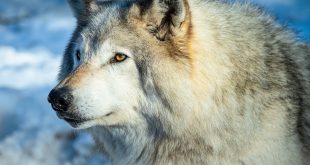
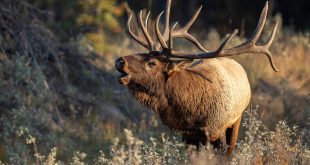
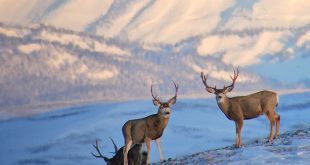
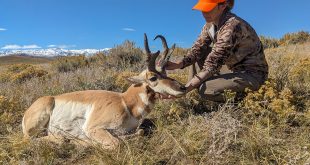
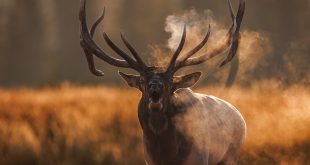
Update:
Numerous motions were filed by concerned citizens to request a rehearing of the Colorado Title Board on Proposition 2023-2024 #91 “Prohibit Trophy Hunting” on the grounds that the title and statement clause of the petition do not fairly represent the true meaning and intent of the initiative.
The filed motions essentially said that the Petition seeks a “prohibition on the trophy hunting of mountain lions, lynx, and bobcats” but then further defines “trophy hunting” as “the intentional killing, wounding, pursuing, entrapping, or discharging or releasing of a deadly weapon at a mountain lion, lynx, or bobcat”. This definition of “trophy hunting” extends the prohibition to essentially all types of hunting. However, trophy hunting is universally defined as hunting for the display of the animal’s head, fur, or other body parts, rather than the utilization of the meat. This is also how the proponents defined trophy hunting in Proposition #91, Section 1. Therefore, the set title of this proposition and the language within Section 1 differ greatly. The definition in the title set by the board does not fairly represent the true meaning and intent of the initiative of the proposition; the true meaning and intent of the proposition is to prohibit hunting of mountain lions, bobcats, and lynx. The title of the proposition should be clear, the use of the words “trophy hunting” is confusing and misleading.
On 1 November a Rehearing was conducted; however, motions were granted only to the extent that the Board made changes to the title; denied in all other aspects.
The Published Hearing Result follows:
A change to the Colorado Revised Statutes concerning a prohibition on the hunting of mountain lions, lynx, and bobcats, and, in connection therewith, prohibiting the intentional killing, wounding, pursuing, entrapping, or discharging or releasing of a deadly weapon at a mountain lion, lynx, or bobcat; creating eight exceptions to this prohibition including for the protection of human life, property, and livestock; establishing a violation of this prohibition as a class 1 misdemeanor; and increasing fines and limiting wildlife license privileges for persons convicted of this crime.